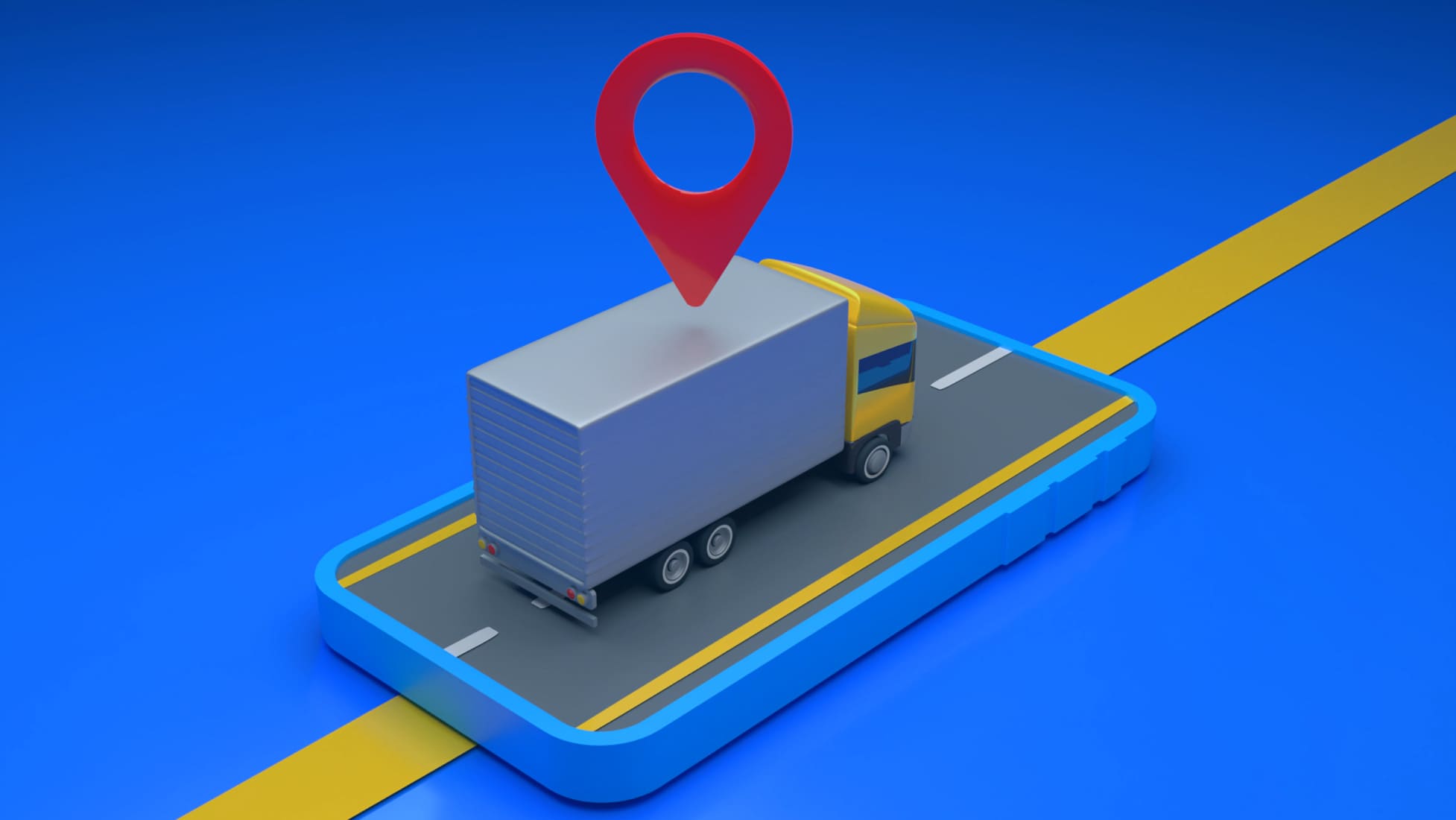The commercial trucking industry is the backbone of global commerce, ensuring the timely and safe delivery of goods across vast distances. However, managing a fleet of commercial trucks presents a myriad of challenges, from ensuring optimal route selection for timely deliveries to maintaining the vehicles in prime condition. The advent of commercial truck tracking systems has revolutionized how businesses approach these challenges, offering a beacon of efficiency and reliability in a sea of logistical complexities.
Commercial truck tracking systems, equipped with advanced fleet management software, provide a comprehensive solution that transcends mere vehicle tracking. These systems offer real-time data on vehicle location, driver behavior, vehicle health, and much more, enabling fleet managers to make informed decisions swiftly. The implementation of such technology not only enhances operational efficiency but also significantly reduces costs, improves safety, and ensures compliance with regulatory standards. In essence, a commercial truck tracking system is not just a luxury but a necessity in today’s fast-paced, demand-driven market.
What is Commercial Truck Tracking Systems?
A Commercial Truck Tracking System is a technology solution designed to monitor, manage, and optimize the operations of trucks used for commercial purposes. It utilizes GPS (Global Positioning System) technology, along with other advanced telematics and software capabilities, to provide real-time data on the location, movement, and status of commercial trucks. This system is a crucial component of modern fleet management, enabling businesses to achieve greater efficiency, safety, and cost-effectiveness in their logistics and transportation operations. Here’s a breakdown of its core features and benefits:
Applications
Commercial truck tracking systems are used by businesses of all sizes that operate fleets for delivery, transportation, logistics, construction, and many other industries. They are essential for companies looking to stay competitive in the fast-paced commercial landscape, where efficiency, compliance, and customer satisfaction are key to success.
The Evolution of Truck Tracking Systems
The journey from manual logbooks to sophisticated GPS-based tracking systems reflects the evolution of fleet management over the years. Initially, the management of commercial trucks relied heavily on physical records and radio communication, methods that were time-consuming and prone to human error. The introduction of GPS technology marked a pivotal moment, offering a glimpse into the future of fleet management.
Today’s advanced fleet management software leverages GPS technology to provide real-time tracking and a suite of analytics tools designed to optimize operations. Modern systems go beyond simple location tracking; they analyze routes, monitor driver behavior, manage fuel consumption, and predict vehicle maintenance needs. This evolution from basic tracking to comprehensive management solutions illustrates the technological advancements that have made commercial truck tracking systems an indispensable tool for fleet operators.
Key Features of Advanced Fleet Management Software
Advanced fleet management software has transformed the logistics and transportation industry, offering unparalleled oversight and control over fleet operations. Here are some of the key features that make these systems indispensable:
Real-Time GPS Tracking
Real-time GPS tracking is the cornerstone of any advanced fleet management system. It allows fleet managers to monitor the exact location of their vehicles at any given moment, enhancing the security of the fleet and cargo. This feature also helps in making quick decisions in response to traffic conditions or emergencies, ensuring timely deliveries and improving customer satisfaction.
Route Optimization
Route optimization algorithms analyze various factors such as traffic conditions, road closures, and delivery windows to determine the most efficient routes for drivers. This not only reduces fuel consumption and wear and tear on vehicles but also maximizes the number of deliveries that can be completed in a day. By minimizing unnecessary mileage, companies can see significant savings in fuel costs and a reduction in their carbon footprint.
Fuel Management
Fuel management features help fleet operators monitor and control fuel usage across their fleet, identifying areas where fuel efficiency can be improved. This includes tracking idling times, optimizing routes for fuel efficiency, and monitoring driver behavior that may contribute to excessive fuel consumption. Effective fuel management can lead to substantial cost savings and is crucial for companies looking to minimize their environmental impact.
Vehicle Maintenance Alerts
Preventative maintenance is essential for keeping a fleet running smoothly and avoiding costly repairs and downtime. Fleet management software provides maintenance alerts based on real-time vehicle diagnostics and usage data, helping fleet managers schedule maintenance proactively. This ensures vehicles are always in top condition, reducing the risk of breakdowns and extending the lifespan of the fleet.
Driver Behavior Monitoring
Monitoring driver behavior is key to ensuring safety and compliance with road regulations. Advanced fleet management systems track speeding, harsh braking, rapid acceleration, and other indicators of risky driving behavior. This data can be used to provide targeted training and feedback to drivers, promoting safer driving practices and reducing the likelihood of accidents and fines.
Analytics and Reporting
The ability to collect and analyze data is one of the most powerful features of advanced fleet management software. Comprehensive analytics and reporting tools give businesses insights into operational efficiency, cost management, and areas for improvement. Customizable reports on vehicle usage, fuel consumption, driver performance, and more enable data-driven decision-making, helping companies optimize their operations and increase profitability.
Benefits of Implementing a Commercial Truck Tracking System
The implementation of a commercial truck tracking system, powered by advanced fleet management software, brings a multitude of benefits that can revolutionize the way a fleet operates. Here are some of the most impactful advantages:
Enhanced Operational Efficiency
By providing real-time data on vehicle location, condition, and performance, truck tracking systems enable fleet managers to make informed decisions quickly. This leads to optimized routes, reduced fuel consumption, and more effective scheduling, significantly enhancing operational efficiency.
Improved Safety and Compliance
Driver behavior monitoring helps identify and correct unsafe driving practices. It reduces the risk of accidents and ensures compliance with road safety regulations. Moreover, maintenance alerts contribute to vehicle safety. It ensures that potential issues are addressed before they can lead to accidents or breakdowns.
Significant Cost Savings
The cost savings associated with implementing a truck tracking system are substantial. By optimizing routes, managing fuel consumption, and reducing idling times, companies can significantly lower their operational costs. Additionally, proactive maintenance can prevent costly repairs and extend the lifespan of vehicles, offering further financial benefits.
Better Customer Service
Real-time tracking and route optimization lead to more reliable delivery times, enhancing customer satisfaction. The ability to provide accurate delivery estimates and real-time updates on cargo status adds value to customer service. It sets businesses apart from competitors.
Environmental Benefits
Reducing fuel consumption and optimizing routes not only saves money but also lowers the environmental impact of fleet operations. By minimizing emissions and contributing to sustainability efforts, companies can meet regulatory requirements and enhance their corporate social responsibility profile.
Managing a commercial fleet involves navigating a complex set of challenges, from operational inefficiencies to safety concerns. Here’s how advanced truck tracking systems offer solutions to these pervasive issues:
Challenge:
Operational Inefficiencies
Solution:
Advanced fleet management software combats inefficiencies through route optimization and real-time tracking. It ensures that vehicles take the most efficient routes and avoid unnecessary idling. This not only saves time but also reduces fuel consumption, directly impacting the bottom line.
Challenge:
Safety Concerns and Compliance
Solution:
Driver behavior monitoring features enable fleet managers to ensure drivers adhere to safe driving practices, reducing the risk of accidents. Maintenance alerts further ensure vehicles are in optimal condition, addressing safety concerns proactively. Compliance with regulatory requirements is also streamlined through detailed reporting and analytics.
Challenge:
High Operational Costs
Solution:
By optimizing route selection, managing fuel consumption effectively, and preventing unscheduled vehicle downtime through proactive maintenance, fleet management systems significantly reduce operational costs. These savings can then be redirected towards other strategic investments.
Challenge: Environmental Impact
Solution: Eco-friendly routing and better fuel management help in significantly reduce the carbon footprint of fleet operations. Advanced systems promote sustainability by minimizing emissions and supporting compliance with environmental regulations.



